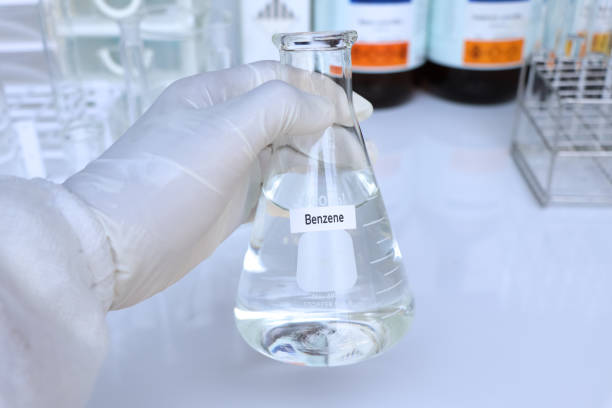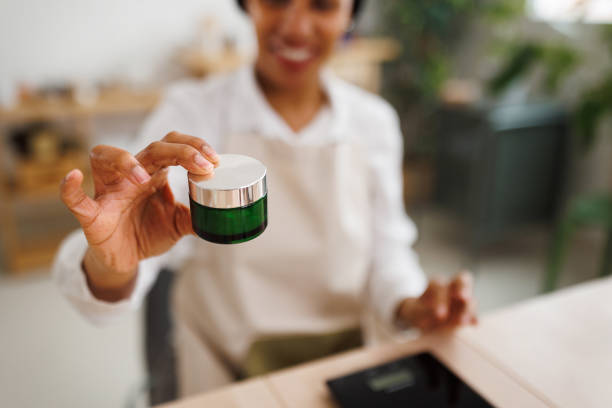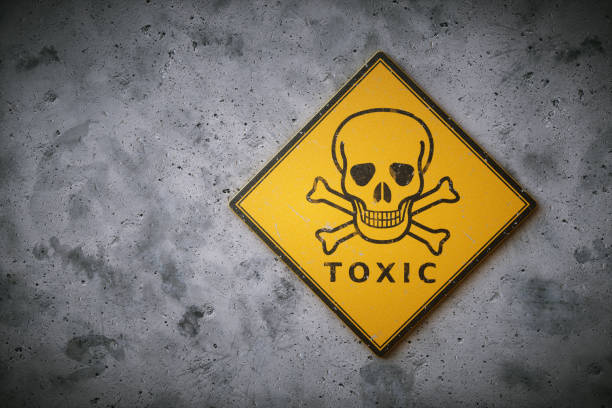According to the official website of the American independent laboratory Valisure, it is a leading technology company. On March 6, the agency released a product inspection report stating that excessive levels of benzene were detected in acne treatment products containing benzoyl peroxide (BPO). Many well-known brands have been involved in cancer scandals.

Benzene is an organic compound with the chemical formula C6H6. It is a colorless, volatile liquid with a special aromatic odor. Benzene is mainly used in cosmetics as a solvent, volatile ingredient or fragrance. It helps other ingredients mix evenly and also imparts fragrance to the product. However, the use of benzene in cosmetics is strictly restricted and regulated because benzene is a known carcinogen.

Application of benzene (cosmetics industry)
In cosmetics, benzene may exist in different forms, common ones include benzene alcohol, benzoic acid, methyl benzoate, etc. Benzene can be used for the following purposes:
Solvent: Benzene, as an organic solvent, can be used to dissolve other chemical ingredients, making them easier to mix together to form cosmetic formulas.
Fragrance: Benzene has a special aromatic taste and can be used to add fragrance to cosmetics and give products a specific smell.
Flavoring agents: Benzene is also used as a flavoring agent to give cosmetics certain taste or texture.
Preservatives: Benzene has a certain antiseptic effect, which can extend the shelf life of cosmetics and reduce the risk of microbial contamination.
Although benzene has some applications in cosmetics, because it is considered a potential carcinogen and toxic substance, regulatory agencies in many countries and regions have restricted its use or even banned its use in cosmetics. Therefore, the use of benzene has been greatly reduced in modern cosmetics, and many brands will choose to use safer alternatives to replace benzene.

The dangers of benzene
Carcinogenicity: Benzene is rated as a first-level carcinogen by the International Agency for Research on Cancer (IARC) and has been confirmed to pose a carcinogenic risk to humans. Long-term exposure to benzene may increase the risk of leukemias (such as acute myeloid leukemia) and other hematological tumors.
Toxicity: Benzene is toxic. Long-term contact or exposure to benzene may cause damage to the central nervous system, hematopoietic system, immune system, etc. This can lead to dizziness, headaches, nausea, vomiting, fatigue, anemia, reduced immune function and other health problems.
Skin Irritation and Allergies: Benzene may cause skin irritation, allergic reactions and other skin problems, especially in those who are allergic or sensitive to benzene.
Environmental Pollution: Benzene is a volatile organic compound that may be released into the air and cause air pollution. In addition, benzene may also pollute the environment through wastewater discharge and discarded cosmetics.
Due to these hazards of benzene, many countries and regions have taken measures to restrict its use, and the cosmetics industry also tends to reduce or avoid the use of ingredients containing benzene. When consumers choose cosmetics, it is best to avoid products containing benzene or other harmful chemicals and choose products that meet safety standards.

Standards for the use of benzene in cosmetics
The use of benzene in cosmetics is subject to restrictions and standards by different laws, regulations and regulatory agencies in various countries. Generally speaking, the standards for the use of benzene in cosmetics usually include the following aspects:
Maximum allowable amount limit: Many countries and regions have stipulated the maximum allowable amount of benzene in cosmetics, that is, the concentration of benzene cannot exceed a certain limit value. This limit is usually expressed as a percentage or mg/liter to ensure that the content of benzene in cosmetics is within a safe range.
Prohibited Use: Some countries and regions may completely ban the use of benzene in cosmetics or limit its use, especially in children's cosmetics or oral care products.
Labeling requirements: In some areas, cosmetics manufacturers may be required to clearly indicate the ingredients of benzene on product labels and provide usage recommendations, safety precautions and other information to allow consumers to make informed choices.
Comply with safety assessment: Cosmetic manufacturers are often required to ensure that their products comply with relevant safety assessment standards to prove that the use of benzene will not cause adverse effects on human health.
Compliance with international standards: Some countries or regions may refer to international cosmetics industry standards, such as EU cosmetics regulations, US FDA regulations, etc., to ensure product quality and safety in their cosmetics markets.
In general, the use of benzene in the cosmetics industry tends to be restricted and regulated to protect the health and safety of consumers. When consumers purchase cosmetics, it is best to choose products that comply with local regulatory standards and provide clear ingredient information.
Post time: Mar-12-2024

